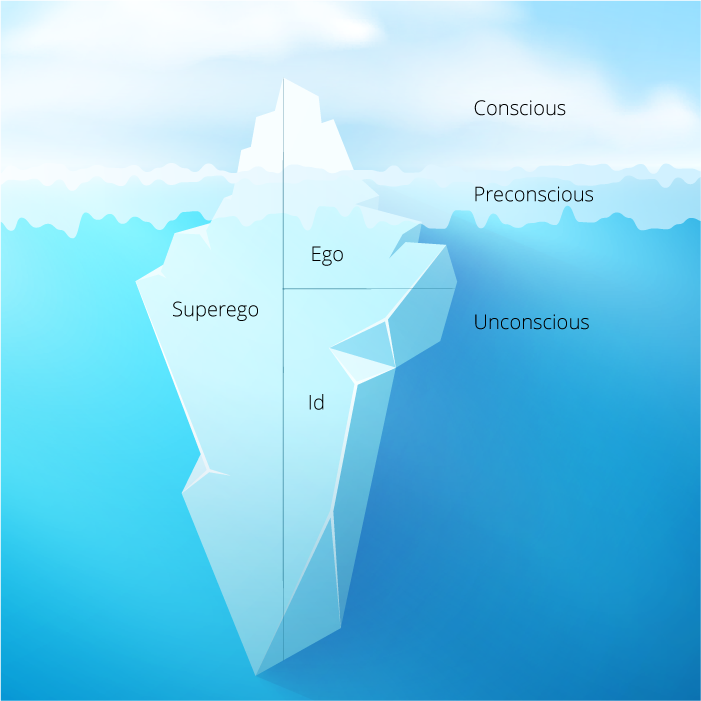Freudian Theory
Initially learned through PSYCH101.
Same as Psychoanalysis?
Id
Id operates on Primary Process Thinking, which is irrational and fantasy oriented.
Id operates on the Pleasure Principle.
- Chocolate cake tastes good, so let’s eat it. Defecating feels good, so let’s do it. Sex is amazing, so let’s get some
The Id does not concern itself with practical or moral limitations in its pursuit for pleasure. In its mind, chocolate cake doesn’t make us fat, defecating in public is not humiliating, and sexual assault is not morally repugnant.
Ego
Ego is Secondary Process Thinking, which is rational and realistic.
- Ego operates on the Reality Principle, which recognizes that actions can carry both positive and negative outcomes.
Yes, chocolate cake tastes good, but we shouldn’t eat the whole cake by ourselves.
Now the Id and the Ego are aligned in that they both want to satisfy biological urges. They both want the cake, and to defecate, and to have sex. It’s just that the Ego also wants to avoid negative consequences in pursuit of these goals.
- ex: Let’s just eat one small piece of cake; let’s find a bathroom to defecate in private; let’s talk to that attractive stranger to see if they like us; we shouldn’t assault others because that would cause them harm
Superego
The Superego is our moral component. Although the Ego is rational, it is not moral.
Superego keeps both the Id and the Ego in check
- We shouldn’t eat the cake because we are on a diet; we shouldn’t defecate in public because it is unclean; and we shouldn’t engage in assault because we shouldn’t cause harm to others.
Superego wields a powerful weapon: Guilt.
Levels of Consciousness
One of Freud’s most important contributions is his distinction between conscious thought (those we are aware of), and unconscious thought (those we have no awareness of). Although we think about unconscious thought very differently today, it was Freud who first introduced the idea to psychology.
